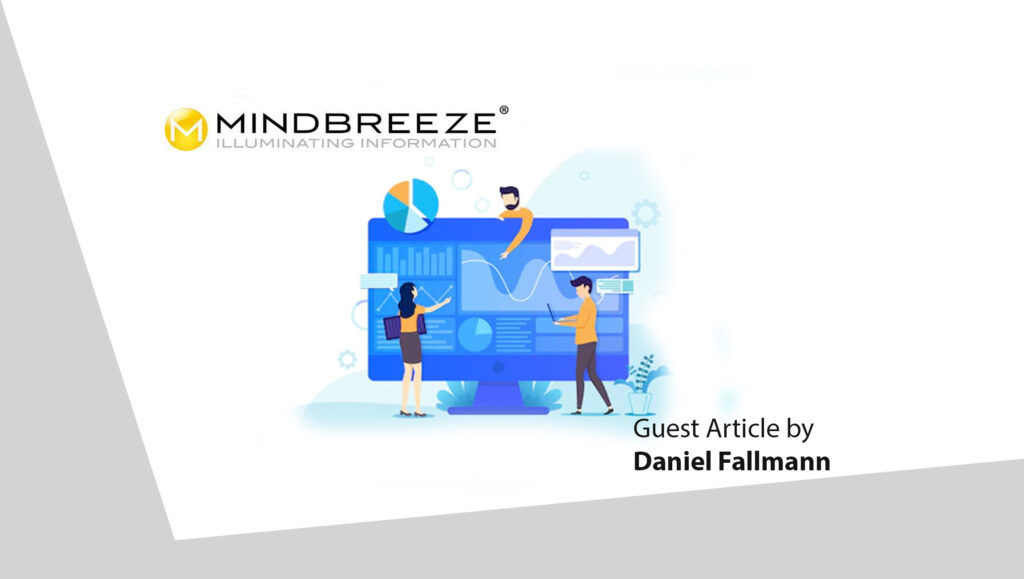Excellent customer experience (CX) comes in many different shapes and sizes. However, a consistent theme, especially in sales departments, is utilizing the entire arsenal of company data to personalize approaches to potential customers. A personalized approach and steering away from the one-size-fits-all mentality can set you apart from the competition and score salespeople more business for their organization.
CX looks at all the interactions people and companies have had with your brand. From social media interactions to email campaigns to demo requests, form downloads, and chatbot conversations, many touchpoints go into the customer journey before somebody becomes a paying customer.
In a recent Gartner survey, 83% of respondents reported that their organization struggles to use customer journey maps to identify and prioritize customer experience efforts. With expectations of clients in the sales funnel heightening, equipping sales teams with 360-degree holistic views of clients has become a must for organizations looking to build memorable and long-lasting relationships with clients.
A more personalized strategy can be the answer to building these relationships; it all starts at the very first touchpoint of the customer journey. Every customer has their unique story and has contacted your brand for a variety of different but specific reasons. Utilizing the “unique” journey of a customer and information that has been generated from other areas of your business is the answer to expert personalization.
In the market today, a handful of artificial intelligence (AI) and machine learning (ML) solutions connect scattered data from structured and unstructured data sources to give sales teams a single access point for the intelligence they need to shape their personalized CX strategies.
Read More: Mastek To Acquire MST Solutions To Address Digital Transformation Opportunities In The Growing…
Gaining Access to Relevant Data to Shape CX and Sales Strategies
As mentioned, intelligence lies in various structured and unstructured data sources. Connecting this data to a single access point and integrating them into existing sales platforms, like Salesforce, can revolutionize how your workforce interprets customer data. To achieve this, AI techniques are required to extract relevant data, recognize important findings and trends, and understand relationships between different entities along the customer journey.
Seamless integration into popular workplace applications also provides sales teams with personalized insights exactly where they need them without stepping away from their current task. Mapping the data from every touchpoint is one thing, but actually putting it to use in your everyday applications results in an easy and coherent insight-finding experience for sales teams and all other departments.
Overall, the connection of scattered data allows sales teams to personalize their emails, demos, or calls to particular clients. Depending on where a lead is in the sales funnel, this may look very different. In addition, to personalizing sales efforts, marketing teams can use the same knowledge management techniques to create the most effective campaigns for potential clients who have yet to reach the purchasing stage.
It is vital to note that management and IT departments can assign access rights to the proper departments and personnel. Data privacy laws always need to be considered, so private information like bank accounts or payment information will not be consolidated by these knowledge management solutions – only relevant data that assist sales teams in customizing and personalizing their efforts.
Read More: SalesTechStar Interview with Mark Simon, Vice President, Strategy at Celigo
Example of Personalized Sales for Better Results
While many departments can benefit from personalized data, it is essential to look at how these tactics can lead to ongoing revenue streams, strong partnerships, competitor differentiation, and meaningful customer relationships. Suppose, within Salesforce, you notice a lead in your pipeline that hasn’t communicated to your latest outreach in several months. The right salesperson will not just leave it alone. They will look to adapt their approach to be less generic and customize it to suit the specific person. Within the application, the sales team can be fed insights in an easily digestible graphical format with all intelligence surrounding the lead.
This holistic view may highlight marketing campaigns they interacted with and critical findings from your last communications – leading sales personnel to revolutionary insights.
With this information, the subsequent email correspondence can be fully personalized automatically and reviewed by the salesperson. Everything from the offering to the language you use will consider the full scope of data and the customer’s likely pain points.
In addition, those same pain points, demos, pricing, highlighted features, sales decks, and more can be personalized once the lead travels further down the sales funnel.
Hopefully, resulting in a sale, support teams can also use the relevant information to help solve tickets for this customer in a timely and efficient manner – building even more trust between customer and brand.
What’s the Goal?
The end goal, of course, is turning leads into customers and keeping them satisfied throughout their entire journey with the product your offering. Becoming more innovative and personalized at every step can help your organization do just that. Breaking down departmental data silos to see the full view of a customer can help sales teams genuinely get in the shoes of the client and understand their wants and needs. The right technology and information insight solutions can help corporations take the essential first step in innovating their CX and sales game plans by connecting company data.




















